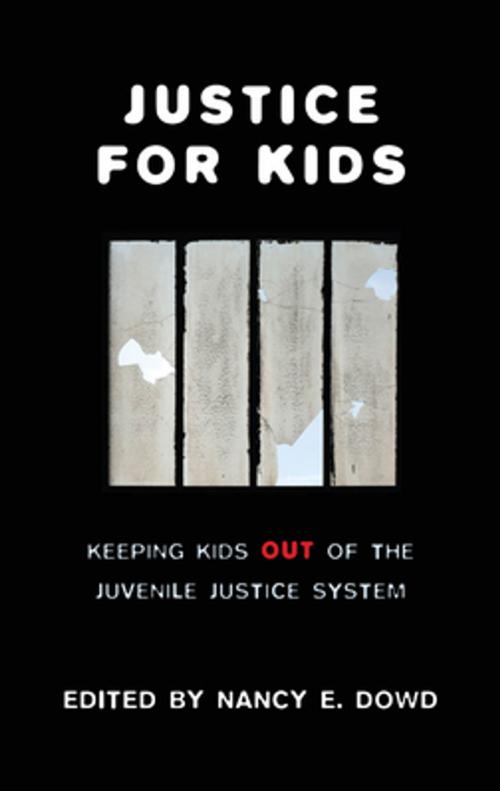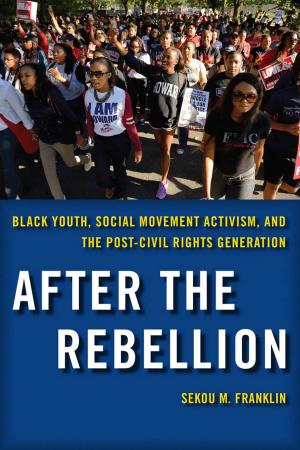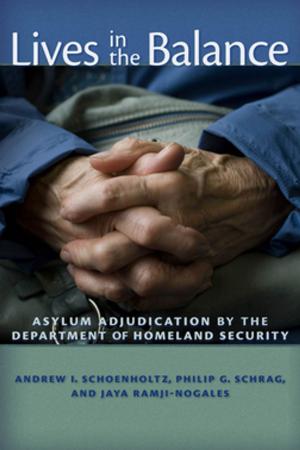Justice for Kids
Keeping Kids Out of the Juvenile Justice System
Nonfiction, Reference & Language, Law, Criminal law, Social & Cultural Studies, Social Science, Crimes & Criminals, Criminology| Author: | ISBN: | 9780814744086 | |
| Publisher: | NYU Press | Publication: | October 1, 2011 |
| Imprint: | NYU Press | Language: | English |
| Author: | |
| ISBN: | 9780814744086 |
| Publisher: | NYU Press |
| Publication: | October 1, 2011 |
| Imprint: | NYU Press |
| Language: | English |
Children and youth become involved with the juvenile justice system at a significant rate. While some children move just as quickly out of the system and go on to live productive lives as adults, other children become enmeshed in the system, developing deeper problems and or transferring into the adult criminal justice system. Justice for Kids is a volume of work by leading academics and activists that focuses on ways to intervene at the earliest possible point to rehabilitate and redirect—to keep kids out of the system—rather than to punish and drive kids deeper.
Justice for Kids presents a compelling argument for rethinking and restructuring the juvenile justice system as we know it. This unique collection explores the system’s fault lines with respect to all children, and focuses in particular on issues of race, gender, and sexual orientation that skew the system. Most importantly, it provides specific program initiatives that offer alternatives to our thinking about prevention and deterrence, with an ultimate focus on keeping kids out of the system altogether.
Children and youth become involved with the juvenile justice system at a significant rate. While some children move just as quickly out of the system and go on to live productive lives as adults, other children become enmeshed in the system, developing deeper problems and or transferring into the adult criminal justice system. Justice for Kids is a volume of work by leading academics and activists that focuses on ways to intervene at the earliest possible point to rehabilitate and redirect—to keep kids out of the system—rather than to punish and drive kids deeper.
Justice for Kids presents a compelling argument for rethinking and restructuring the juvenile justice system as we know it. This unique collection explores the system’s fault lines with respect to all children, and focuses in particular on issues of race, gender, and sexual orientation that skew the system. Most importantly, it provides specific program initiatives that offer alternatives to our thinking about prevention and deterrence, with an ultimate focus on keeping kids out of the system altogether.
Children and youth become involved with the juvenile justice system at a significant rate. While some children move just as quickly out of the system and go on to live productive lives as adults, other children become enmeshed in the system, developing deeper problems and or transferring into the adult criminal justice system. Justice for Kids is a volume of work by leading academics and activists that focuses on ways to intervene at the earliest possible point to rehabilitate and redirect—to keep kids out of the system—rather than to punish and drive kids deeper.
Justice for Kids presents a compelling argument for rethinking and restructuring the juvenile justice system as we know it. This unique collection explores the system’s fault lines with respect to all children, and focuses in particular on issues of race, gender, and sexual orientation that skew the system. Most importantly, it provides specific program initiatives that offer alternatives to our thinking about prevention and deterrence, with an ultimate focus on keeping kids out of the system altogether.
Children and youth become involved with the juvenile justice system at a significant rate. While some children move just as quickly out of the system and go on to live productive lives as adults, other children become enmeshed in the system, developing deeper problems and or transferring into the adult criminal justice system. Justice for Kids is a volume of work by leading academics and activists that focuses on ways to intervene at the earliest possible point to rehabilitate and redirect—to keep kids out of the system—rather than to punish and drive kids deeper.
Justice for Kids presents a compelling argument for rethinking and restructuring the juvenile justice system as we know it. This unique collection explores the system’s fault lines with respect to all children, and focuses in particular on issues of race, gender, and sexual orientation that skew the system. Most importantly, it provides specific program initiatives that offer alternatives to our thinking about prevention and deterrence, with an ultimate focus on keeping kids out of the system altogether.















